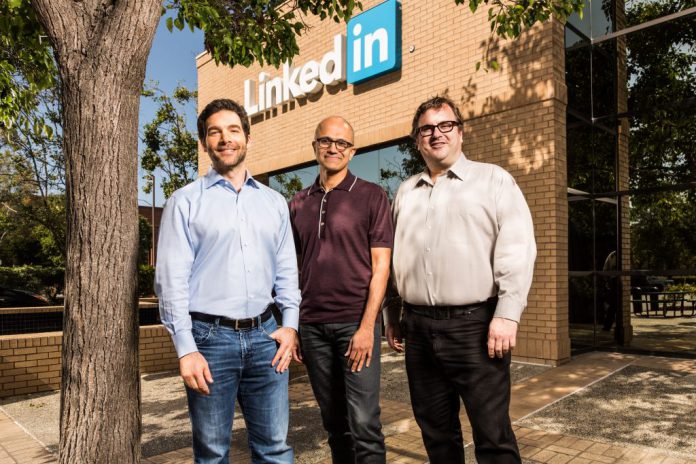Microsoft's $26 billion LinkedIn acquisition has now cleared after a lengthy concessions process. The company has stuck to its goal of completing the deal before Christmas, though it's not without caveats.
Complaints about the deal were made by EU regulators early last month, coinciding with opposition from Salesforce. CEO Mark Benioff stated that Microsoft would have an unfair advantage due to LinkedIn's database of 450 million professionals.
Brussels seemed to agree with these worries, leading to an offering of concessions from the Redmond giant. Details of these were released on November 22nd, but it wasn't clear if the European Commission would accept them.
Approval and Full Concessions
Today, Microsoft's chief legal officer Brad Smith announced the acceptance, producing a full list of terms. The following commitments will be in place for five years:
- “We'll continue to make our Office Add-in program available to third-party professional social networking services. The Office Add-in program enables developers to integrate their services into Microsoft Outlook, Word, PowerPoint and Excel, providing users an enhanced experience using Office. As we continue to improve this program, these improvements will be available to third-party professional social networking services.
- We'll continue to make promotional opportunities in the Office Store available to third-party professional social networking services.
- We'll ensure that IT administrators and users can customize their Office experience by choosing whether to display in the user interface the LinkedIn profile and activity information that may be integrated in the future.
- If we develop a LinkedIn application or a tile for Windows PCs and include it in Windows, we'll allow PC manufacturers to choose not to install them on their Windows PCs in the European Economic Area, or EEA. Similarly, we'll ensure that users can uninstall the application and tile if they wish. We also won't use Windows itself to prompt users to install a LinkedIn application, although it can remain available in the Windows Store and be promoted in other ways.
- In the EEA we won't enter into agreements with PC manufacturers for pre-installation of a Windows LinkedIn application or tile that would favor LinkedIn on an exclusive basis and thereby bar the distribution of competing professional social networking services.”
The caveats were enough for the EU to accept that Microsoft does not harbor any ill-will to rival social networks.
“A growing number of Europeans subscribe to professional social networks. Today's decision ensures that Europeans will continue to enjoy a freedom of choice between professional social networks,” said Margrethe Vestager, EU antitrust chief.
According to Smith, the two companies can now work together to achieve a shared vision. Microsoft will begin integrating several services, with the goal of expanding work, education, and rural broadband opportunities.
Last Updated on December 7, 2016 7:15 pm CET by Ryan Maskell






